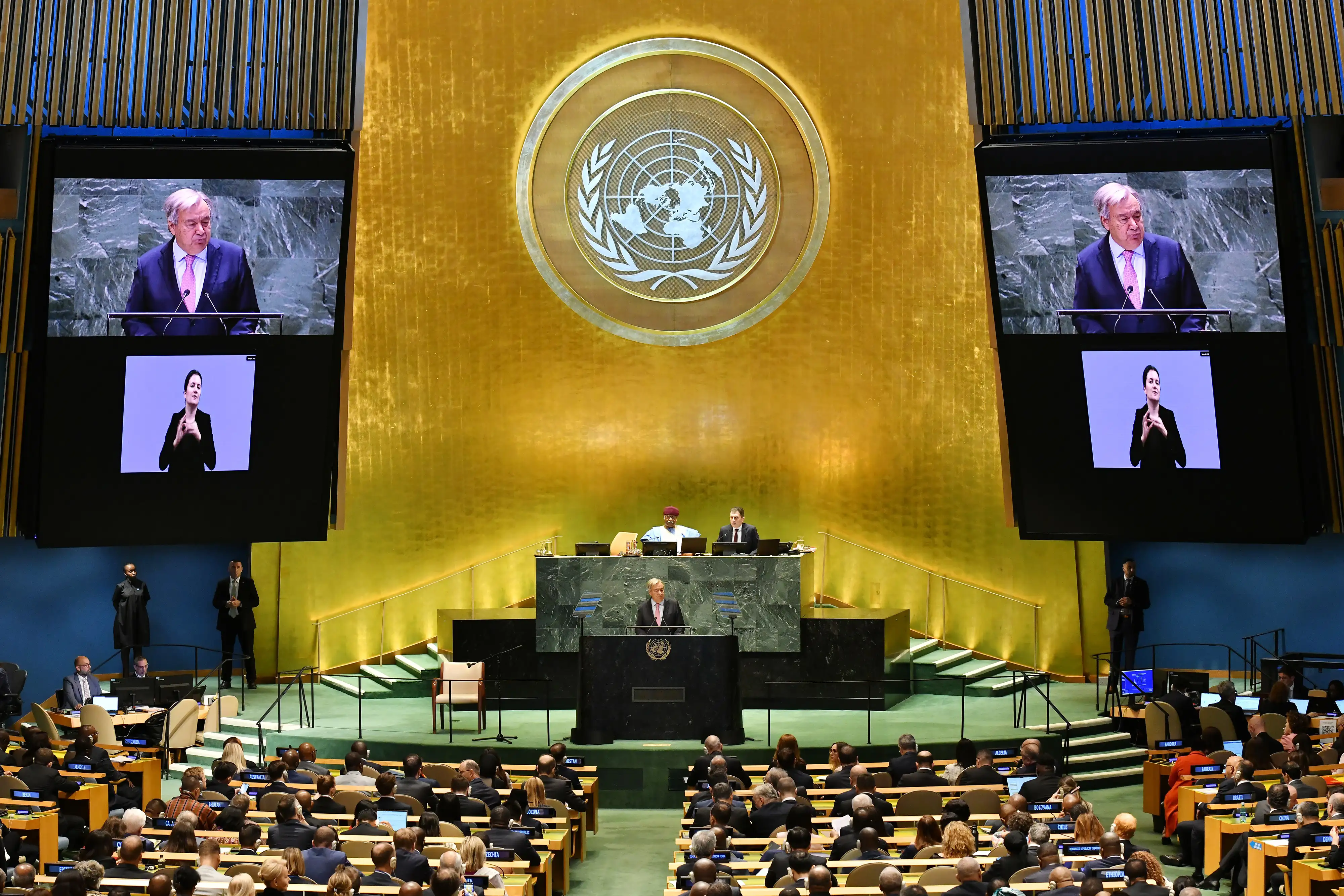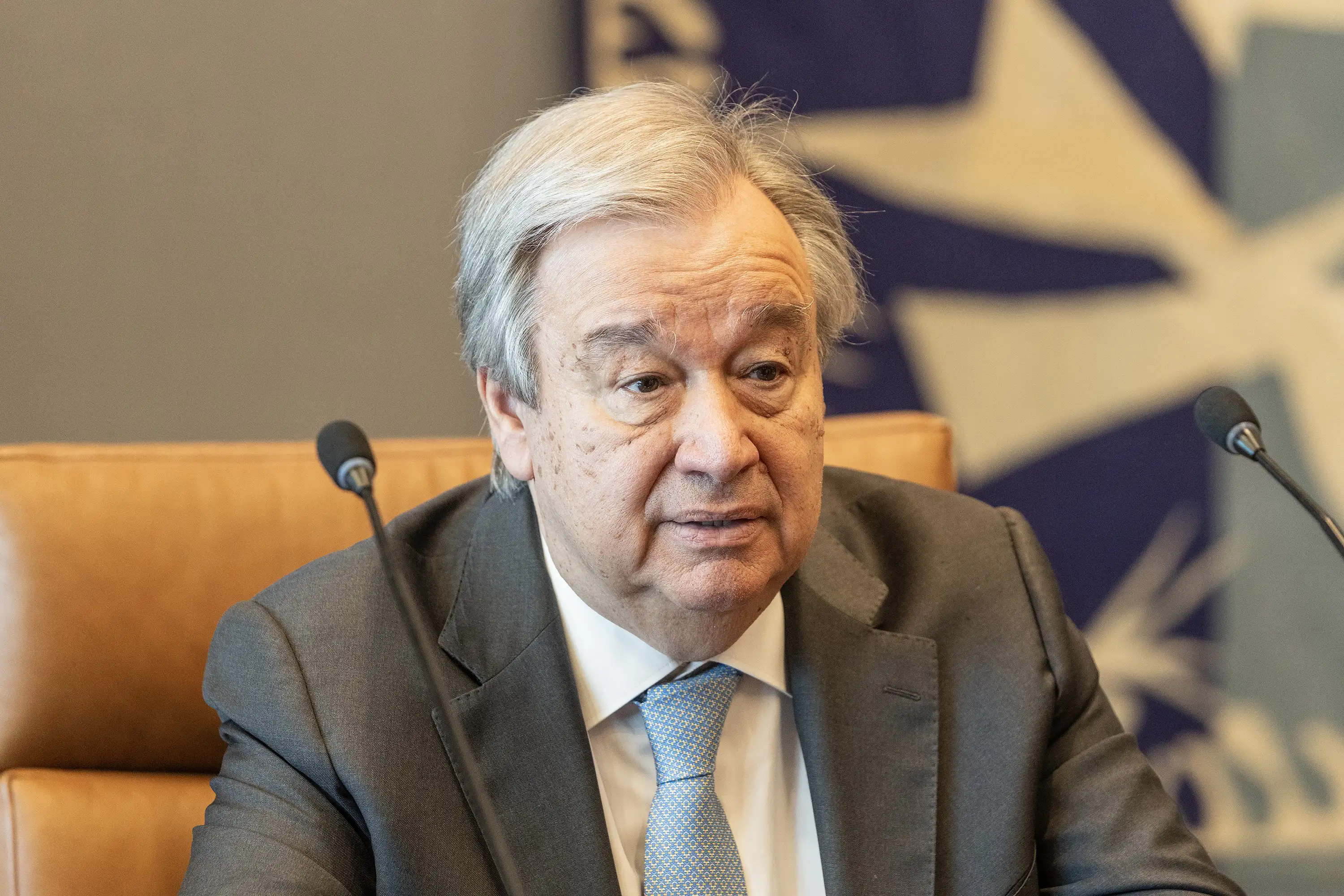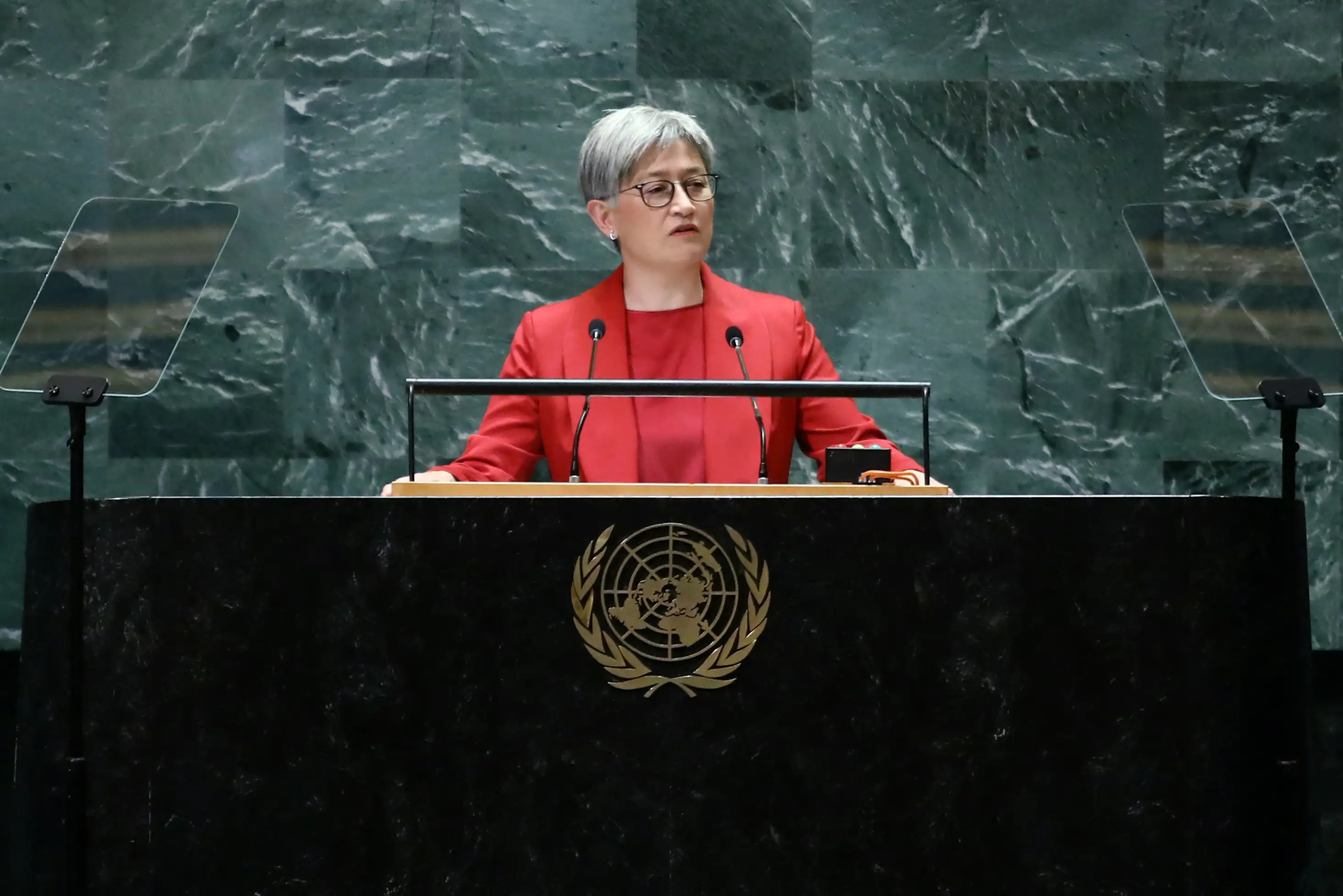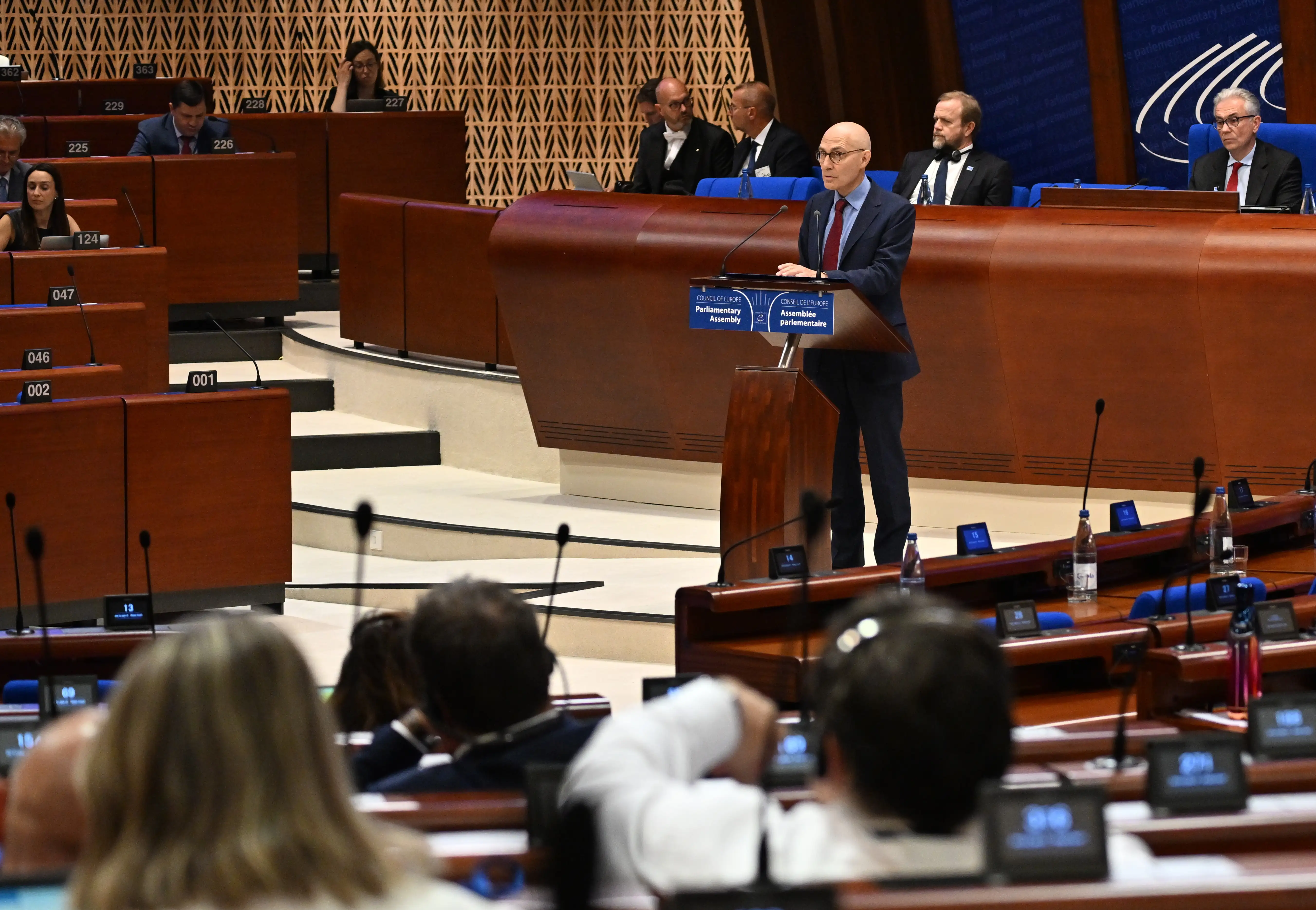
Politics & Society
A breakthrough for justice and peace

The 56 recommendations in the United Nations’ Pact for the Future come amid warnings that “the world is at an inflection point in history”
Published 8 October 2024
The world is moving closer to the brink of instability, according to United Nations (UN) Secretary General António Guterres.
“…our world is heading off the rails — and we need tough decisions to get back on track. Conflicts are raging and multiplying, from the Middle East to Ukraine and Sudan, with no end in sight. Our collective security system is threatened by geopolitical divides, nuclear posturing and the development of new weapons and theatres of war.”

This statement was part of the SG’s opening remarks at last month’s Summit of the Future where a Pact for the Future was adopted by United Nations (UN) member states.
Australia took part of the negotiations for the draft pact and the Minister for Foreign Affairs, Senator Penny Wong, led the Australian delegation.
The Summit comes at an important time for Australia because in 2025, Australia will take up a two-year seat on the UN Peacebuilding Commission (PBC).
Australia is also standing for election to the Security Council for 2029-30 and the Summit was an opportunity to influence other countries views of Australia’s goals, policies and strategies to strengthen peacebuilding and conflict prevention.
Addressing the UN General Assembly in September 2023, Minister Penny Wong emphasised Australia’s active role in the UN’s peacebuilding agenda since its inception, “focused on addressing the underlying factors that contribute to conflict”.

Politics & Society
A breakthrough for justice and peace
Ahead of the Summit, Wong said “Australia will be using this week to press the need for all countries to uphold these laws and norms, including the adherence to the international humanitarian law and the protection of civilians and aid workers.”
But how did negotiations go down at the Summit?
After months of discussions, the Pact for the Future, which includes an annex on working towards a responsible and digital future and a declaration for future generations, was adopted without a vote at the start of the two-day Summit.
UN Member States emphasised the importance of multilateralism in tacking wars, environmental threats and the technological challenges humanity faces.
But on two key issues – signing the Treaty on the Prohibition of Nuclear Weapons for which Prime Minister Anthony Albanese has previously expressed strong support, and a legally binding instrument on the development and use of automatic weapons systems – Australia appears not ready to act.
Ahead of the summit, representatives from Department of Foreign Affairs and Trade (DFAT) said Australia will focus on the founding pillars of the UN: peace, human rights and development.
Australia supports reform of the UN to make it more effective and is committed to supporting the Sustainable Development Goals (SDGs).
But there are calls for Australia to support a stronger emphasis on prevention of conflict, with armed combat raging in several regions around the world.

Prevention of conflict should become a key theme for Australia’s engagement in the PBC along with improved mechanisms that support consultative and inclusive approaches, for women, First Nations People and civil society.
The alarming re-emergence of the nuclear threat from the Cold War is also a focus. Australia could play a key role as a middle power and an ally of the US.
Many experts have spent many years advocating the prohibition of nuclear weapons and that Australia should sign the Treaty on the Prohibition of Nuclear Weapons (TPNW) urgently.
The Government needs to be consistent and sign the treaty without delay, and in the meantime avoid adding further obstacles to compliance, including by ensuring visiting naval vessels and aircraft are not carrying nuclear weapons.
According to Guterres, human rights were woven into the agreements made at the Summit. Australia is a strong supporter of the Rule of Law and was well placed to reinforce human rights in the pact.

Politics & Society
Celebrating 75 years: The UN’s past and future
But Australia must promote follow-up measures that reinforce the accountability of all States, including but not limited to parties to a conflict, to secure respect for International Humanitarian Law.
These measures should include a comprehensive review of all existing processes linked to the pursuit of greater accountability, including deconfliction mechanisms, and a review of what Australia is doing, and can additionally do, at the national level.
Ahead of the Summit, experts called for the UN Security Council to be reformed to improve its capacity to maintain international peace and security.
These came to fruition in one of the outcomes of the Pact, which will see a change to the size of the Security Council to accommodate new members from historically underrepresented regions.
Then there’s the matter of money.
The Office of the UN High Commissioner for Human Rights (OHCHR) needs more support for more funding.

The regular budget for human rights in 2023 represented just over five per cent of the total UN regular budget. The Peace and Security pillar funding was more than 17 times that of OHCHR.
With a budget of $US392,600,000, OHCHR ranks way down the list, at 21st out of the 23 leading agencies of the UN for funding.
By way of comparison, the budget of World Intellectual Property Organization is some $US541.3 million, UN Women $US671 million, UN Environment Programme $US929.4 million, or UN Population Fund $US1.6 billion.
The importance of the Summit and the commitments of UN member states to the Pact for the Future is underlined by Guterres, who pitched the Summit as a “once in a generation” chance for structural reform at the UN.
In the words of Guterres, "We are at an inflection point in history. In our biggest shared test since the Second World War, humanity faces a stark and urgent choice: a breakdown or a breakthrough."

Politics & Society
Peacemaker: Is Australia up to the task?
The University of Melbourne Initiative for Peacebuilding, the UN Association of Australia and the Australian Institute for International Affairs (ACT) convened a roundtable in Canberra in early August ahead of the UN Summit of the Future. You can read the six background papers published by University of Melbourne Initiative for Peacebuilding here.